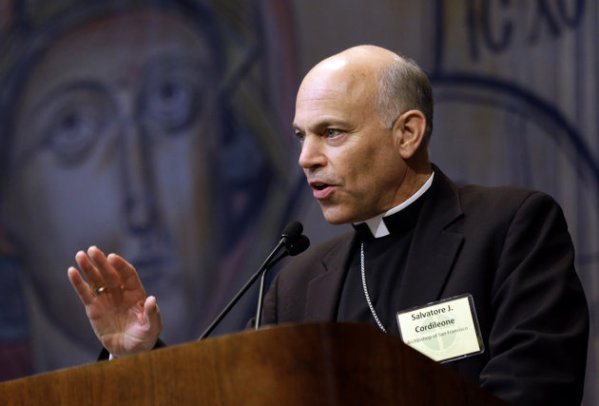
By George Weigel
As the Catholic Church and the Obama administration approach the first anniversary of what has become the most serious confrontation between the Church and the federal government in U.S. history — a confrontation caused by a regulatory mandate implementing Obamacare — a review of the strategic situation is in order, with an eye to the terrain ahead. But given the confusions about this struggle that were sown in many minds during the presidential campaign (not least by the vice president of the United States), it is important to begin by remembering just what is being contested here.
THE MANDATE
Early in 2012, the Obama administration first announced, and then finalized, a regulation implementing the “preventive services” requirement of the Patient Protection and Affordable Care Act, popularly known as Obamacare. Issued by the Department of Health and Human Services, the regulation generally requires that health-insurance plans, including plans sponsored by employers, provide contraceptives, abortifacient drugs, and sterilizations without any cost (or “co-pay”) to the insured. While the mandate exempted certain religious employers, its definition of a “religious employer” was absurdly narrow and would not exempt the vast majority of Catholic educational, social-service, and health-care institutions, because they employ non-Catholics and serve non-Catholics.
The HHS mandate thus requires most Catholic institutions and employers to provide “reproductive-health services” or “preventive services” that the Catholic Church judges to be gravely immoral. In doing so, the mandate seriously burdens Catholics in the free exercise of their religious convictions. Those convictions are not abstractions. Religiously informed Catholic moral convictions are culture-building and institution-forming: They shape the ethos and activities of Catholic educational, charitable, and social-service agencies, and they shape the professional lives as well as the personal lives of conscientious Catholics.
Thus, in contesting the HHS mandate, the Catholic Church is defending and promoting religious freedom in full, as that first freedom touches both institutions and individuals. The Church is claiming the fundamental religious-liberty right to be itself, not least in its service to the poor, the vulnerable, and the marginalized; and the Church is defending the fundamental religious-liberty right of the people of the Church to be themselves, in their professional as well as their personal lives. In claiming and defending religious freedom in full, the Church is defending the American understanding, with which Catholic teaching is in full accord, that “religious freedom” cannot be reduced (as the Obama administration seems to want to do) to a privacy right to certain lifestyle choices — in this case, the choice to worship. Religious freedom in full is far more than freedom to worship without civil liability, although it surely includes that.
It should also be remembered, indeed underscored, that the Obama administration has laid this burden on Catholic institutions and Catholic employers in an unnecessary, and thus aggressive, way. The U.S. government has numerous ways to distribute contraceptives and abortifacient drugs, and to provide sterilizations. It need not conscript Catholic institutions and Catholic employers as governmental agents in order to meet the administration’s public-policy goals. Attempting to do so through coercive state power (i.e., the power to levy heavy monetary fines for non-compliance) breaches what has long been understood to be a secure boundary between the state and civil society in the United States.
THE BISHOPS’ RESPONSE
Confronted by this challenge, which they did not seek but which they could not ignore, the Catholic bishops of the United States, under the leadership of their conference president, Cardinal Timothy Dolan of New York, and the chairman of their conference’s special committee on religious liberty, Archbishop William Lori of Baltimore, mounted a principled, vigorous campaign against this unconstitutional, discriminatory, and wholly unnecessary regulation throughout 2012. The bishops first tried to convince the administration that the HHS mandate should be rescinded. The administration then floated the notion of an “accommodation” that would nominally shift the obligation of providing (and paying for) coverage of “preventive services” from religious institutions and conscientious employers to the insurance companies. The bishops recognized this tactic for the shell game it was, repeated their call for rescission of the mandate, and reiterated their willingness to explain and defend their concerns to the administration.
Read pages 2 and 3 at National Review Online.
No comments yet



